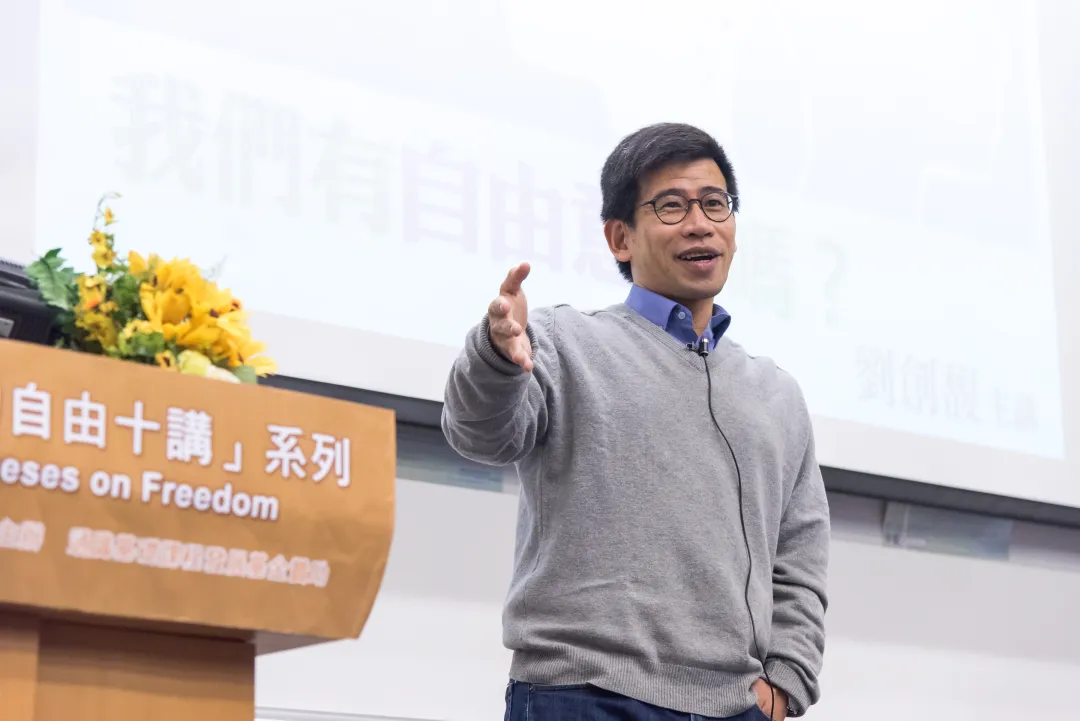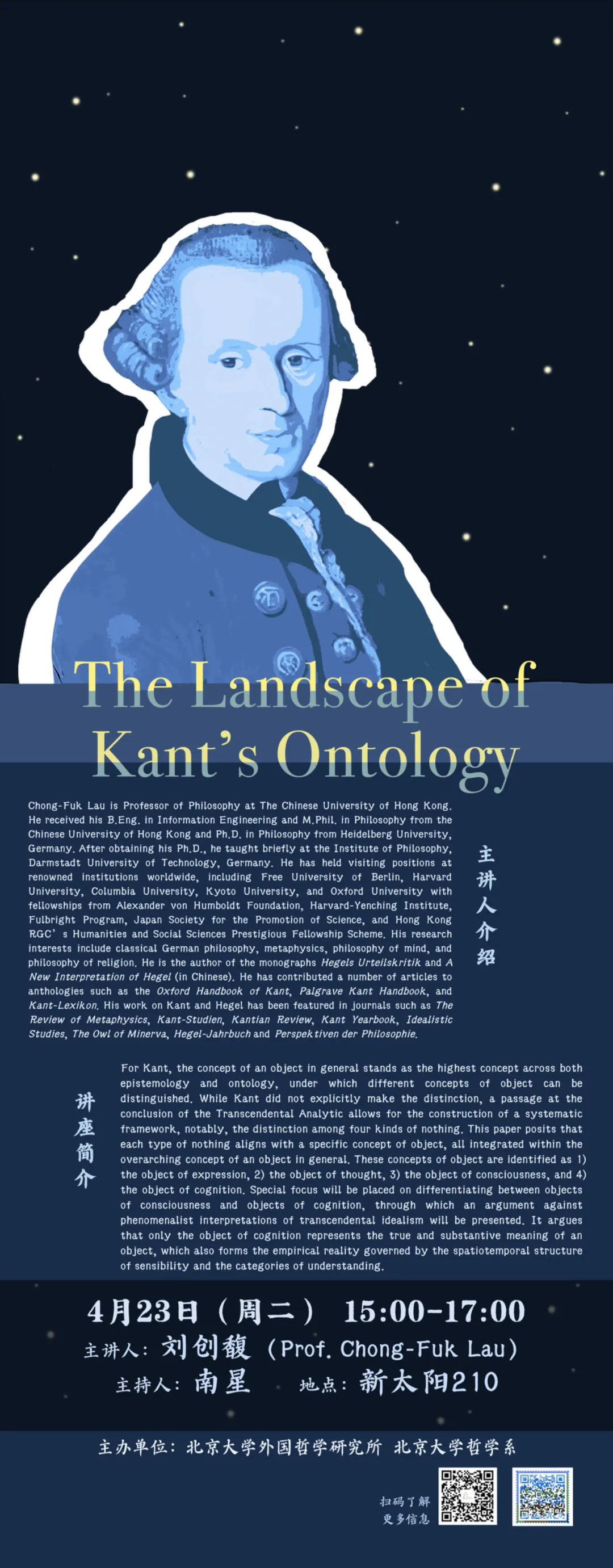04.23: The Landscape of Kant's Ontology
讲座信息
主题
The Landscape of Kant's Ontology
时间
4月23日(周二)15:00—17:00
主持人
南星
地点
新太阳210
主讲人:刘创馥


讲座简介
For Kant, the concept of an object in general stands as the highest concept across both epistemology and ontology, under which different concepts of object can be distinguished. While Kant did not explicitly make the distinction, a passage at the conclusion of the Transcendental Analytic allows for the construction of a systematic framework, notably, the distinction among four kinds of nothing. This paper posits that each type of nothing aligns with a specific concept of object, all integrated within the overarching concept of an object in general. These concepts of object are identified as 1) the object of expression, 2) the object of thought, 3) the object of consciousness, and 4) the object of cognition. Special focus will be placed on differentiating between objects of consciousness and objects of cognition, through which an argument against phenomenalist interpretations of transcendental idealism will be presented. It argues that only the object of cognition represents the true and substantive meaning of an object, which also forms the empirical reality governed by the spatiotemporal structure of sensibility and the categories of understanding.



